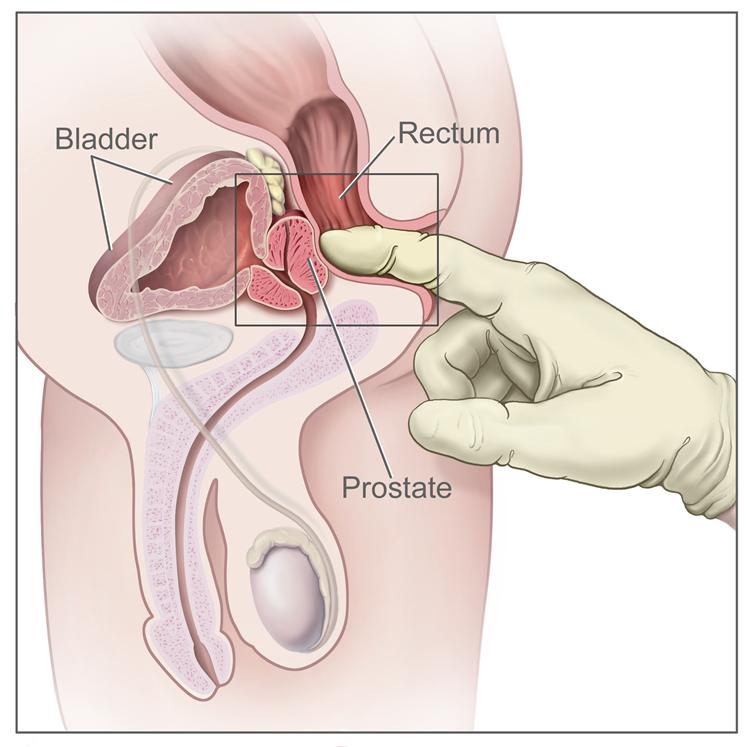Prostate Cancer
|
|
(after skin cancer), but it can often be treated successfully. More than 2 million men in the US count themselves as prostate cancer survivors. What is Prostate Cancer? About Prostate Cancer The prostate is a gland found only in males. It is located in front of the rectum and below the urinary bladder. The size of the prostate varies with age. In younger men, it is about the size of a walnut, but it can be much larger in older men. The prostate's job is to make some of the fluid that protects and nourishes sperm cells in semen, making the semen more liquid. the exact cause is unclear, certain risk factors increase the chance that prostate cancer may develop. These include: -Family history and genetic factors. If your father or brother had prostate cancer at a relatively early age (before they were 60) then you have an increased risk. -Also, if the type of breast cancer which is linked to a faulty gene runs in your female relatives, then you are at increased risk of prostate cancer. These factors point towards a faulty gene which may occur in some men. -Ethnic group. Prostate cancer is more common in African-Caribbean men and less common in Asian men. -Diet is possibly a risk factor. As with other cancers, a diet high in fats and low in fruit and vegetables may increase the risk. -Exposure to the metal cadmium may be a risk. How is prostate cancer diagnosed?Initial assessmentIf a doctor suspects that you may have prostate cancer, he or she will usually:
Call your doctor if you have any of these symptoms:
Foods to eat to prevent prostate cancer: Tomatoes Broccoli Green Tea Legumes and Soybeans Pomegranate Juice Fish |
Citations
"Public Records." Been Verified. Web. 18 Dec. 2014. <http://www.beenverified.com/lp/b39c0b/1/landing?subid=&utm_campaign=59&utm_content={utm_content}&utm_medium=affiliate&utm_source=1179&utm_term={utm_term}>.
"Prostate Cancer." PHARMACISTNOW. Web. 18 Dec. 2014. <http://pharmacistnow.weebly.com/prostate-cancer.html>.
"Public Records." Been Verified. Web. 18 Dec. 2014. <http://www.beenverified.com/lp/b39c0b/1/landing?subid=&utm_campaign=59&utm_content={utm_content}&utm_medium=affiliate&utm_source=1179&utm_term={utm_term}>.
"Prostate Cancer." PHARMACISTNOW. Web. 18 Dec. 2014. <http://pharmacistnow.weebly.com/prostate-cancer.html>.


